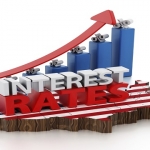Home > Wall Street > Should I Buy Individual Bonds or Bond Funds?
Should I Buy Individual Bonds or Bond Funds?
 Bonds play a role in a portfolio, even when the outlook for interest rates is uncertain. They offer a lower level of volatility than stocks. Plus, bonds historically have had different return characteristics. Determining how to best get exposure to them can be a challenge, however, as there are advantages and disadvantages to choosing between bond funds and individual bonds.
Bonds play a role in a portfolio, even when the outlook for interest rates is uncertain. They offer a lower level of volatility than stocks. Plus, bonds historically have had different return characteristics. Determining how to best get exposure to them can be a challenge, however, as there are advantages and disadvantages to choosing between bond funds and individual bonds.
Bond funds
Bond funds offer ease and simplicity. A bond fund gives you instant access to a diversified portfolio of bond holdings. The downside is that the typical bond fund, unlike an actual bond, never matures. The price of a fund’s shares and the cash flows you receive will depend on the bond market’s fluctuations—which are influenced by changes in interest rates—and, of course, the manager’s skill. So, bond funds lack a guaranteed rate of return. In addition, with a bond fund you will pay ongoing annual management expenses and have no ability to control the timing of capital gains.
Bonds
Bonds offer a higher (but not absolute) level of predictability. A bond held to maturity will provide a fixed rate of return. At a pre-specified date, you will get the face (“par”) value of the bond back, typically $1,000 per bond. In addition, you will receive semi-annual interest (“coupon”) payments. Both of these amounts are fixed for traditional American bonds and enable you to calculate the pretax rate of return at the time of purchase. This rate of return does not alter as long as you keep the bond to maturity. This is why some bond experts suggest buying actual bonds as opposed to bond funds.
The key is to hold the bond until it matures. Individual bonds offer limited upside, but the risk of a complete loss of your invested capital on the downside. The primary upward drivers of a bond’s price are a decline in interest rates or a credit rating upgrade. Limiting the magnitude of the upside is the fixed return that bonds offer when held to maturity. Excessively overpay for a bond and you will lose money unless you can find someone willing to pay even more. The downside is the potential for losing your entire investment if a default occurs and there are not enough assets to repay you. (A bond is essentially a loan to the issuer.) Defaults tend to be limited among high-credit-quality bonds (though they can occur).
Bonds can be more difficult to buy than stocks. A single company may issue many bonds. Using General Electric as an example, the company has only one class of common stock that is publicly traded, GE. Conversely, a search on FINRA’s Bond Market Data website identified 500 bonds associated with General Electric. Thus, while you can call your stock broker and simply say “buy me X number of shares of GE stock,” you can’t do the same with GE bonds. You will have to give the CUSIP number (the bond equivalent of a stock ticker) or at least the maturity or yield you desire. Since there are multiple issues, liquidity (the number of active buyers and sellers) will also differ. Depending on what you are trying to buy and the amount you are looking to invest, it may be challenging to complete a trade.
In Summary
The decision to buy a bond or a bond fund should be based not only on your goals, but also on the size of your portfolio, your personal preference about how involved you want to be with your portfolio and whether you want to work with a financial professional who is skilled in building and managing a bond portfolio.
To learn more about Guy Conger view his Paladin Registry profile.
Other posts from Guy Conger
Market Volatility Is Nothing New
I’m tasked with writing financial articles for many internet sites and even a few publications. I find this...
Some Words of Wisdom to Investors
Dear Fellow Investor, the events of the last couple of weeks gave me the idea of providing a...
Interest Rates Rise as Fed Decides
After waiting seemingly forever, the Fed finally raised short-term interest rates last week by 25 basis points, or...




